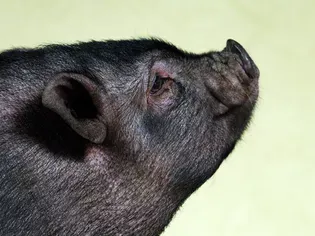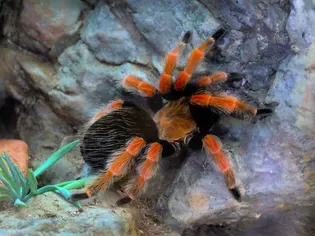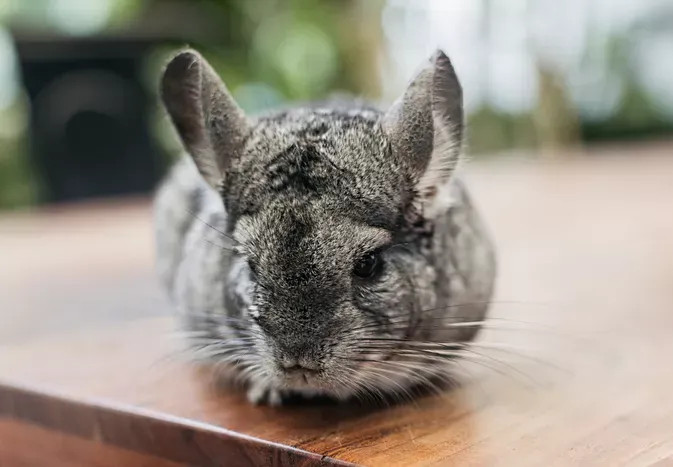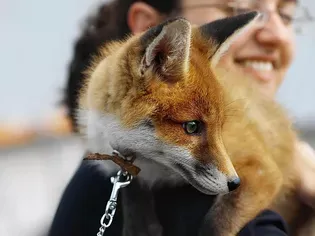Lifespan and Care of Potbellied Pigs
Updated on 05/26/24

Unveiling the Captivating World of Potbellied Pigs: A Comprehensive Guide to Lifespan and Care
Introduction
Potbellied pigs, with their endearing personalities and unconventional appearance, have captured the hearts of many animal enthusiasts. Their popularity as companion animals is growing, but understanding their unique needs is crucial to ensure a fulfilling and healthy life for these fascinating creatures. This comprehensive blog explores the lifespan and care of potbellied pigs, providing essential information to help you make informed decisions and provide the best possible care for your swine companion.
Lifespan of Potbellied Pigs
Contrary to popular belief, potbellied pigs can live considerably longer than their farm-raised counterparts. With proper care and nutrition, they can enjoy an average lifespan of 12-15 years, some individuals even reaching 20 years or more.
Factors that influence lifespan include:
* Genetics: Breed and family history play a role in determining a pig's potential lifespan.
* Nutrition: A balanced diet high in fiber and low in fat is crucial for maintaining good health and longevity.
* Exercise and Activity: Regular exercise and mental stimulation contribute to overall well-being and prevent obesity and related health issues.
* Veterinary Care: Regular medical checkups, vaccinations, and prompt treatment of illnesses are essential for a long and healthy life.
Housing and Environment
Potbellied pigs require a safe and comfortable living space that meets their specific needs.
* Housing: Pigs should have access to both indoor and outdoor areas. The indoor space should be insulated and well-ventilated, and the outdoor area should be fenced and secure.
* Bedding: Pigs prefer to nest in cozy and warm bedding. Provide straw, hay, or blankets for them to burrow into.
* Enrichment: Pigs are intelligent and curious animals. Offer them toys, games, and obstacles to stimulate their minds and encourage exploration.
Nutrition and Feeding
A balanced diet is essential for the health and well-being of potbellied pigs.
* Feed: Commercially formulated pig feed is recommended as the base of their diet.
* Fruits and Vegetables: Fruits and vegetables, such as apples, carrots, and sweet potatoes, provide additional nutrients and fiber.
* Avoid: Pigs should not be fed table scraps or high-fat foods. These can lead to digestive issues and obesity.
Health and Veterinary Care
Regular veterinary checkups are crucial for detecting and treating health problems early on.
* Vaccinations: Essential vaccinations include those for swine flu, brucellosis, and erysipelas.
* Deworming: Pigs should be dewormed regularly to prevent parasitic infections.
* Dental Care: Pigs' teeth grow continuously, so they require regular dental care to prevent overgrowth.
* Common Health Issues: Potbellied pigs are prone to certain health issues, such as obesity, respiratory infections, and hoof problems. Early detection and treatment are essential for a positive prognosis.
Training and Socialization
Potbellied pigs are highly social animals and should be properly trained and socialized from a young age.
* Training: Positive reinforcement methods are effective for training pigs. Teach them basic commands and tricks to enhance their bond with you.
* Socialization: Pigs need exposure to different people, animals, and situations to become well-adjusted and friendly.
* Companionship: Pigs are happiest when they have companions, either of their own species or other well-socialized animals.
Grooming and Hygiene
Regular grooming is essential for maintaining a pig's health and well-being.
* Bathing: Pigs should be bathed occasionally using a mild soap and warm water.
* Brush: Brush their coat regularly to remove dirt and loose hair.
* Hooves: Trim their hooves periodically to prevent overgrown and painful nails.
* Hygiene: Keep their living area clean and well-maintained to prevent health issues and parasites.
Conclusion
Potbellied pigs make wonderful companion animals, but their unique needs must be understood and met to ensure their health and happiness. By providing them with a balanced diet, adequate housing, regular veterinary care, and proper training and socialization, you can give your pig a long, fulfilling, and affectionate life. Embrace the joy and responsibility of owning a potbellied pig, and enjoy the unwavering companionship and entertainment they provide.
Explore More Pets

Exotic Pet Species
Should You Keep a Chimpanzee as a Pet?

Exotic Pet Species
Should You Keep a Raccoon as a Pet?

Exotic Pet Species
How to Care for a Pet Mexican Red-Knee Tarantula

Exotic Pet Species
12 Best Exotic Pets for Apartment Living

Exotic Pet Species
Best Foxes to Keep as Pets

Exotic Pet Species
Should You Keep a Northern Flying Squirrel as a Pet?

Exotic Pet Species
Should You Keep Stick Insect as a Pet?

Exotic Pet Species
Should You Keep a Big Cat as a Pet?
